What is a Volkfest?
Volksfeste or folk festivals are regional celebrations and events in Germany that usually have a long history. They are often based on local culture and the seasons as well as holidays like Easter and Whitsun can play a role. Depending on the region, folk festivals can also be called “Kirchweih”, “Kerbe”, “Messe”, “Jahrmarkt”, “Schützenfest” or “Kirmes”.
Germany’s biggest and most famous Volksfest is Oktoberfest (which takes place in Munich from September 16th to October 3rd this year). But there are plenty of other local celebrations to check out. Here’s a look at some of the best folk festivals across Germany.
Kiel: Kieler Woche (Kiel Week or Kiel Regatta)
From June 17th to 25th, the Kieler Woche, billed as the largest sailing event in the world, will take place. In 2019, 3.5 million people attended the event, which is based in venues spread all over the city. At the Olympic Centre Schilksee, international regattas are planned, while the Willer Balloon Sail on the Nordmarksportfeld sees colourful hot-air balloons take to the skies.
For concerts and theatre, crowds head to the open-air stage at Krusenkoppel and the Fördebühne at Bernhard-Harms-Weg. And in the Scandinavian fishing village on the Reventlou Loop, a market with northern European charm and a lighthouse attract visitors.
READ ALSO: Eight unmissable events in January in 2023
Hamburg: Hamburger Dom
Hamburg’s famous funfair takes place on the city’s Heiligengeistfeld, St Pauli three times a year. Visitors to the festival get to experience a mix of carousels, lottery stalls, snack bars, sweet stands, bars and rides. In total, there are over 230 different attractions, and the Volksfest dates back over 700 years. In 2023, the Spring Dom is planned from March 24th to April 23rd, the Summer Dom from July 21st to August 20th and the Winter Dom will be in place from November 10th to December 10th.
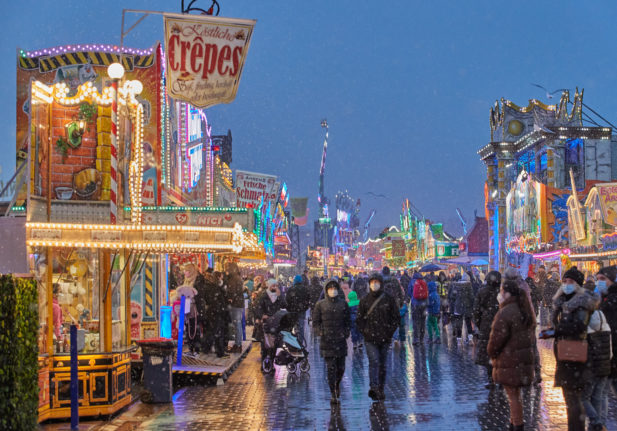
Hamburg: Hafengeburtstag (Harbour Birthday)
The city’s Hafengeburtstag is a street festival taking place on the banks of the river Elbe. It involves boating traditions and offers people the chance to stroll, hang out and feast along the harbour mile. Check out the fireworks on Saturday night at the Landungsbrücken. The festival takes place from May 5th to 7th.
Bremen: Freimarkt (Free Market)
Founded way back in 1035, the Bremen Freimarkt is one of the oldest folk festivals in Germany. It attracted 4.4 million guests in 2019, making it one of the biggest in Germany. Its name derives from the fact that here – in contrast to the usual weekly markets – non-local and local merchants were both free to sell goods. Otherwise only members of other Bremen guilds were allowed to trade. It was not until the beginning of the 19th century that it became solely an amusement festival complete with a rollercoaster, ferris wheel, ghost train and almost 50 other rides. It takes place at the Bürgerweide near the main railway station.
Things are a bit more tranquil at Bremen’s market square at the “Kleiner Freimarkt”, with doughnuts, roasted almonds, liquorice and nostalgic carousels. In the nearby market village dating back to 1382, blacksmiths, glassblowers and stonemasons will be demonstrating crafts, while jugglers and singers will provide entertainment. The whole fest is taking place for the 987th time from October 13th to 29th.
Paderborn: Libori
Expect culture and fun activities at the nine-day Libori Festival. The town hall square becomes a concert mile and dance floor, the Franz-Stock-Platz a “place of the arts” with acrobatics, comedy, theatre and puppet shows. Another tradition is the beer fountain, where barley juice flows instead of water. The festival originated in 836 when the holy relics of St Liborius were brought back from Le Mans to the episcopal city of Paderborn. The next Liborifest is set to take place from July 22nd to 30th.
Soest: Allerheiligenkirmes (All Saints’ Fair)
Europe’s largest old town funfair, which has clocked up almost 700 years of tradition, attracted almost 1.3 million spectators in 2019. Its unique atmosphere is based on the juxtaposition of colourful high-tech fairground rides, historic half-timbered houses and the almost 1,000-year-old cathedral.
In the centre of what was once one of the most important Hanseatic cities, almost 50,000 square metres is reserved for the festival, taking place from November 8th to 12th this year. A culinary speciality at the North Rhine-Westphalia fair is honey liqueur, served in edible “schnapps glasses” made of chocolate-covered wafers.
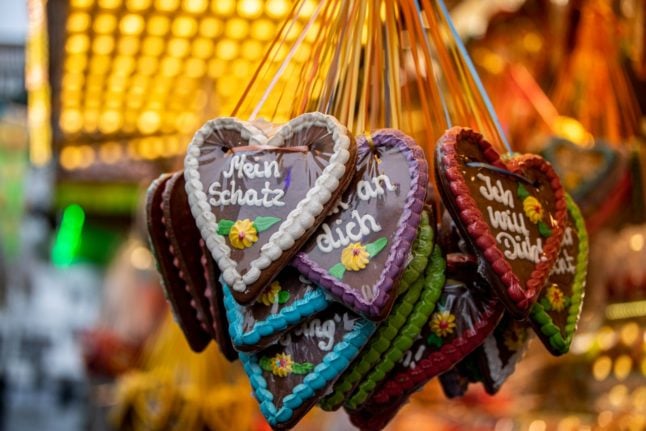
Düsseldorf: Größte Kirmes am Rhein (Largest funfair on the Rhine)
The third-largest Volksfest in Germany, the ‘Größte Kirmes am Rhein’ attracted four million people in 2019. Held on the Rhine meadows between the Rheinkniebrücke and Oberkasseler Brücke bridges, the festival is hosted by the St. Sebastianus-Schützenverein.
Among the rides, the Bayern Tower stands out. The world’s tallest maypole, at 90 metres, rotates 73 metres above the ground. Don’t forget to check out the fireworks display. Put these dates in your diary to check it out: 14th to 23rd July.
Herne: Cranger Kirmes
Among the 50 or so rides at this fair in North Rhine-Westphalia, the ferris wheel offers great views and cool experiences: guests can have a picnic, tapas or coffee in the cabins on the ride. The funfair programme includes a horse market, musical performances plus the tapping of the barrel by the mayor as well as a large parade. A fireworks display traditionally forms the finale. The Cranger Kirmes takes place from August 3rd to 13th.
Nuremberg: Nürnberger Volksfest (Folk Festival)
There are two editions for this festival at the Großer Dutzendteich: the Spring Festival from April 8th to 23rd and the Autumn Volksfest set for August 25th to September 10th. There are lots of fairground rides for the whole family. The programme includes the samba show Bateria quem é, Punch and Judy in the Frankendorf, a classic car parade and the ‘Night of 1000 Lights’ – a fireworks display over the Dutzendteich. But there are also contemporary events such as ‘apprentice speed dating’ in the Ferris wheel, where major employers from the region try to fill their apprenticeship places (yes, really!).
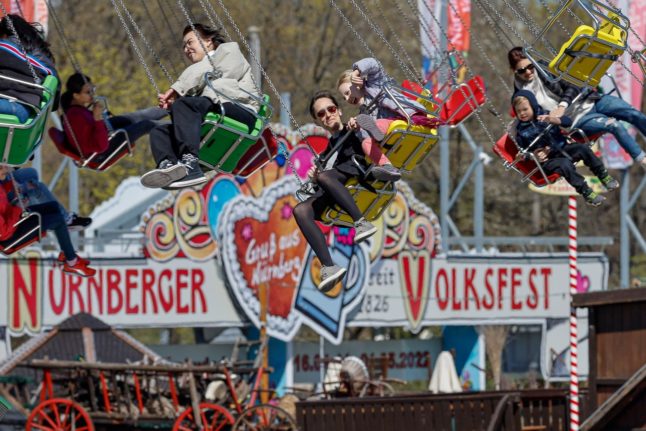
Stuttgart: Cannstatter Volksfest/Wasen
The Cannstatter Volksfest is known as the Wasen after its venue in Neckarpark in Stuttgart’s Bad Cannstatt district. It attracted around 3.5 million visitors in 2019 and is celebrated between September and October. A huge number of fairground operators set up in the city. During the parade on the first Sunday of the festival, expect outlandish costumes and music bands from all over Germany marching through the historic streets of Bad Cannstatt to the Wasen.
The spring edition of the festival – a “Wasen light” – is to take place from April 22nd to May 14th. The regular folk festival is scheduled for September 22nd to October 8th.

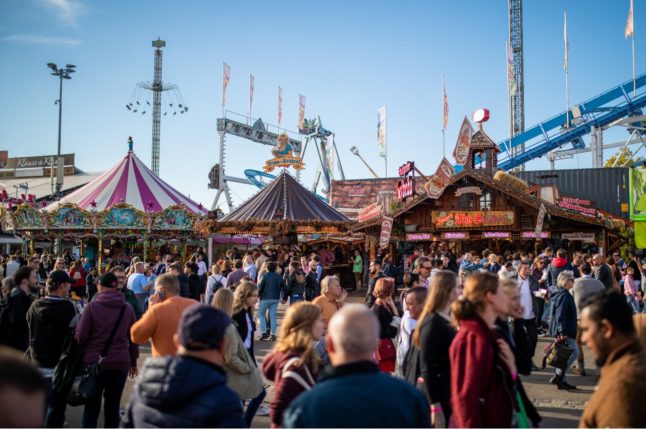
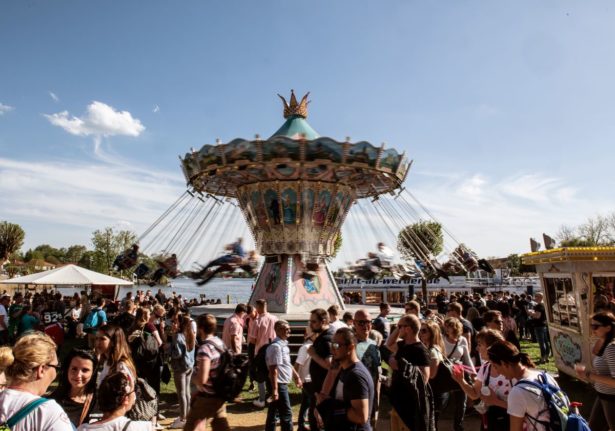
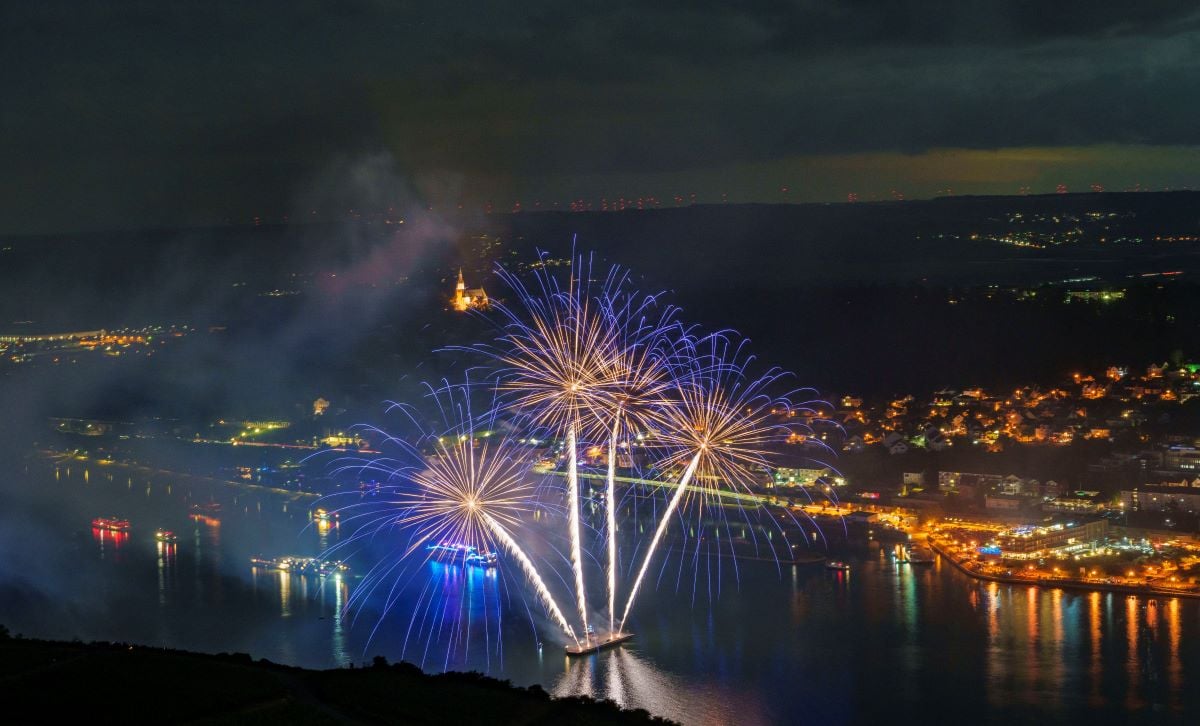
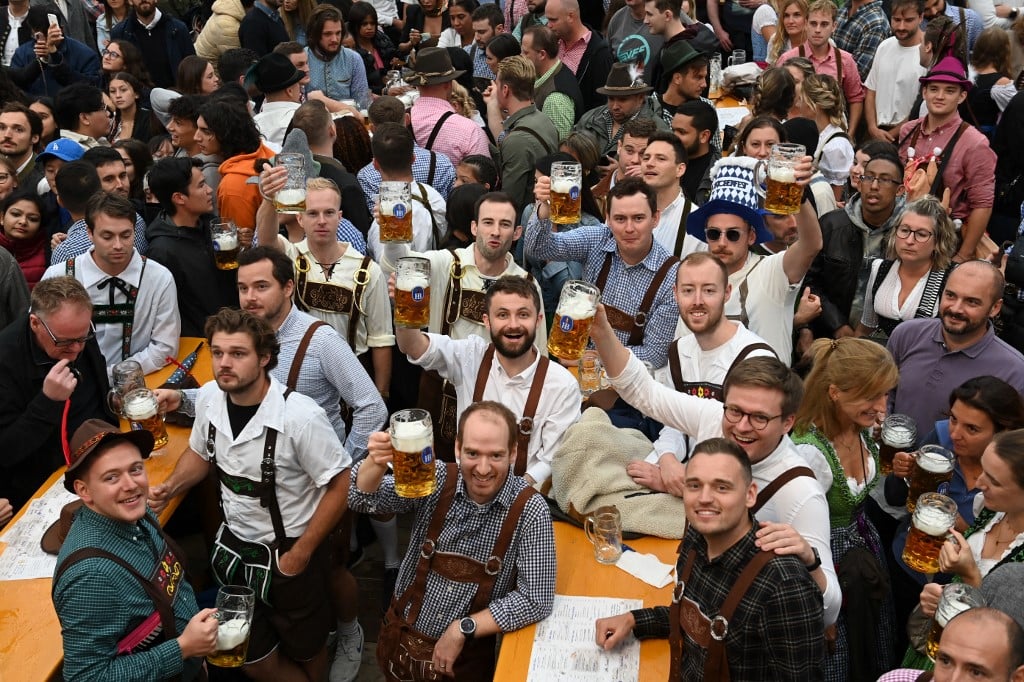
 Please whitelist us to continue reading.
Please whitelist us to continue reading.
Member comments